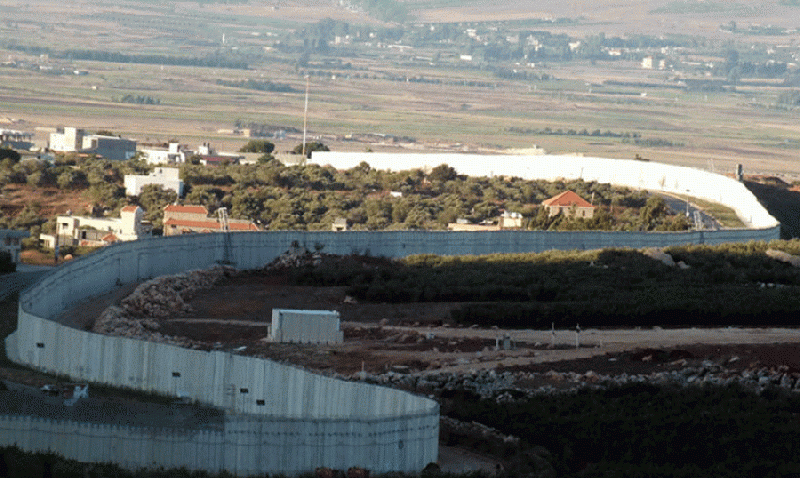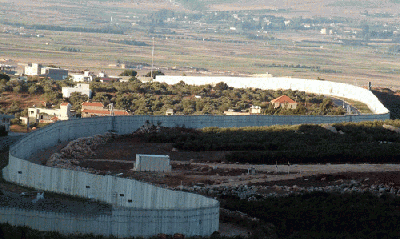Lebanese people are concerned about the diminishing international attention to their country, contrary to the belief of some politicians, given that countries are preoccupied with their internal issues. They are tasked with helping to extricate the election of a president from the political stalemate that could extend beyond the upcoming U.S. presidential elections in November, especially since parliamentary blocs refuse to meet halfway to facilitate his election by agreeing on a candidate who enjoys the majority's support, as reported by "Asharq Al-Awsat".
However, this anxiety may also reflect the escalating situation in the south between Israel and Hezbollah, which is supporting Hamas amid stalled mediation efforts for a ceasefire in Gaza—which is expected to extend to southern Lebanon. This area is currently witnessing unprecedented escalation that threatens to widen the war, particularly as Hezbollah links the calm in the south to the cessation of aggression against Gaza.
In this context, political sources are questioning the guarantees that prevent Israel from expanding the war if an agreement is reached with Hamas for a ceasefire through Arab-American mediation, without it being coupled with a sustainable settlement. From Israel's perspective, this would restore stability to the south in a manner that allows for measures to preempt the possibility of renewed confrontations at any moment. There are also queries directed at the caretaker government about whether it has assurances for the return of calm to the south in the event of a ceasefire in Gaza, given what is being conveyed by Western diplomats in Lebanon—that Tel Aviv conditions a ceasefire on reaching an agreement that effectively restores stability, ensuring the safe return of displaced persons on both sides of the border.
The same sources do not rule out that Israel may have a premeditated plan aimed at implementing a slow destruction policy, affecting not only the frontline villages along the border between the two countries but also insisting on including villages subject to the application of UN resolution 1701, which causes Western diplomats to worry that this slow destruction scheme might align with pressures to implement this resolution in its own way.
There are fears regarding Israel's adoption of a slow destruction plan, unlike the approach it took in reducing the Gaza Strip to rubble as revenge against Hamas. This is seen as a means to restore its prestige, directly impacted by Hamas's invasion of settlements in the Gaza envelope. As such, it appears to be following a step-by-step plan to continue the gradual destruction of southern towns, believing that this would exempt it from international community intervention to pressure for a ceasefire.
It has been emphasized that the caretaker government should now prepare for the worst-case scenarios, primarily Israel's adoption of slow destruction in areas south of the Litani River, which should theoretically fall under the sovereignty of the Lebanese state, supported by the UN peacekeeping forces UNIFIL alongside the Lebanese army units deployed there to implement resolution 1701.
Implementing slow destruction in these towns, from the perspective of political sources, implies that Israel aims to transform the south of the Litani, under continuous fire pressure from all weapons, into a demilitarized and depopulated area, making it difficult to live there after itscorches everything using internationally banned phosphorus bombs.
Consequently, most towns in the southern Litani, apart from those located on the frontline against Israeli borders, are beginning to become semi-burned land that is nearly lifeless. This is particularly pertinent as the slow destruction coincides with Israel’s ongoing series of assassinations that target not only senior military leaders of Hezbollah in the south but also civilians, as if seeking to enforce curfews in this area, tracking political figures outside its purview, extending to the Lebanese-Syrian borders near the outskirts of Damascus.
Thus, the sources view the slow destruction as part of a plan through which Israel insists on transmitting a message, directed not only at Hezbollah but also the international community, signaling that it will persist in targeting Hezbollah's infrastructure and facilities, whether civil or military, ultimately applying resolution 1701 with force and in its own way, consolidating its air and ground control—albeit from a distance—over the southern Litani, leaving Lebanon and the international community with a reality that what is currently being implemented in the south is simply a sample of Israel’s application of resolution 1701.
The lingering question, according to the sources, is whether the Lebanese government has a plan—should Israel decide to prolong the war in Gaza, potentially forcing Hezbollah to continue its support for Hamas—that would ensure a minimum coexistence with the volatile situation in southern Lebanon and mitigate its internal repercussions? Or does it prioritize international and Arab communications, which are being led by Prime Minister Najib Mikati, despite their necessity in trying to secure a safety net for Lebanon, while not allowing the country to remain on a waiting list as time will not work in its favor, while everyone anticipates the American mediator Amos Hochstein restarting his engines with Parliament Speaker Nabih Berri; as it is he who negotiates on behalf of Hezbollah in coordination with Mikati to restore calm in the south by implementing resolution 1701?
As of now, there seems to be no political openings for Hochstein, who has not ceased communication with Berri and Mikati, without any definitive outcome regarding his anticipated return to Beirut. This suggests that the prognosis for the future of the situation in the south remains suspended on the discussions that Israeli Prime Minister Benjamin Netanyahu will hold with senior officials in the U.S. administration starting on the 24th of this month, which is the scheduled date for his arrival in Washington as reported by "Asharq Al-Awsat".




